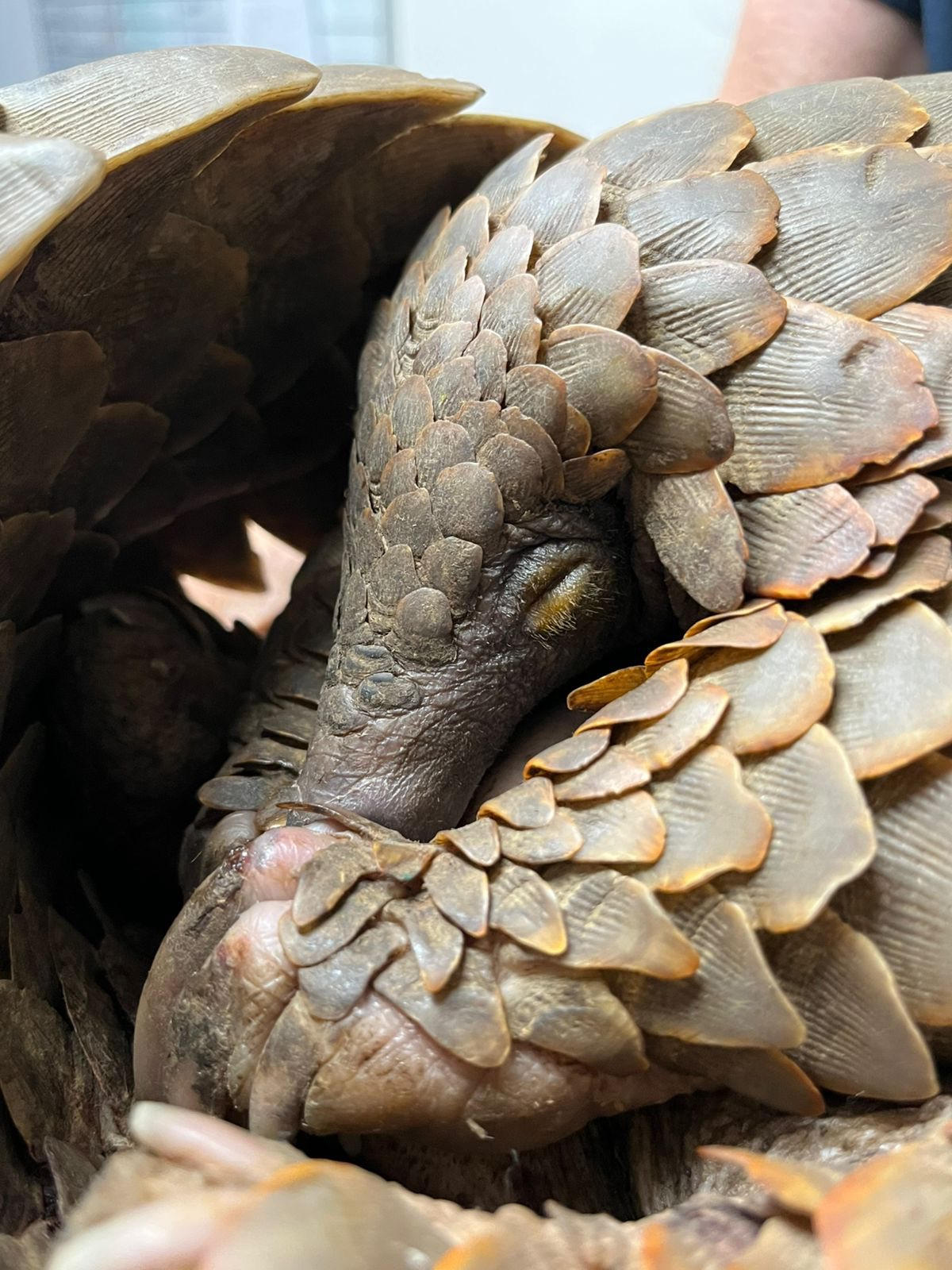Another pangolin saved, treated, and back under starry skies, thanks to the team who have been leading these rescues for almost a decade.
Johannesburg, South Africa (09 October 2025) – His name is Pepheng, after the Tswana word for ‘scorpion.’ It’s a fitting name for the striking male Temminck’s pangolin, who used his sharp tail scales to defend himself before realising the humans around him were there to help.
After weeks of recovery at the Johannesburg Wildlife Veterinary Hospital, Pepheng has now been released back into the wild, under starry skies where he belongs.

And with his freedom, the hospital has reached a milestone we’re clapping for. Over 200 pangolins have been saved since they began this life-saving work almost a decade ago.
Pangolins are the most trafficked mammals in the world. Their scales are highly sought after in the illegal wildlife trade. This, along with loss of habitat, has sadly pushed them into severe danger. All eight known pangolin species are listed on the IUCN Red List of Threatened Species as Vulnerable to Critically Endangered.
The Temminck’s pangolin is the species found in SA. When confiscated from poachers, these shy animals often arrive weak, stressed, and on the brink of death. The team at the Johannesburg Wildlife Veterinary Hospital (JWVH) are the heroes who step in to help.
Saving a pangolin isn’t easy, not by any stretch.
Each rescue starts with law enforcement putting their lives on the line to intercept poachers. Then comes the hospital’s round-the-clock care which includes stabilising traumatised animals and running life-saving treatments, as well as ensuring their patients are properly fed. Pangolins go through rehab for weeks or even months before they can finally be released. The work doesn’t stop there either. The team also plays a key role in court cases against poachers, putting together detailed reports and often testifying in court to ensure that justice is carried through.
JWVH has been a leader in pangolin care for years. Dr Lourens, one of their co-founders, was actually the first vet in South Africa to successfully treat Temminck’s pangolins, she pioneered medical protocols that are now used all around the world.
Their team works tirelessly to refine treatment methods, do critical research, and work with law enforcement to set the standard for pangolin conservation worldwide. Pangolins aren’t the only animals they care for – they’re a non-profit, well-received as Jozi’s top dedicated wildlife-only veterinary hospital.
This amazing team relies entirely on donations to keep the doors open. Without the public’s help, they wouldn’t be able to care for all the pangolins, owls, snakes, hedgehogs, genets, frogs, bokkies, bushbabies, and other wildlife that need urgent care. They never turn a patient away. But the costs are immense.
If you’d like to be part of their work and help save more creatures like Pepheng, you can donate via the Johannesburg Wildlife Veterinary Hospital’s website by following this link.

